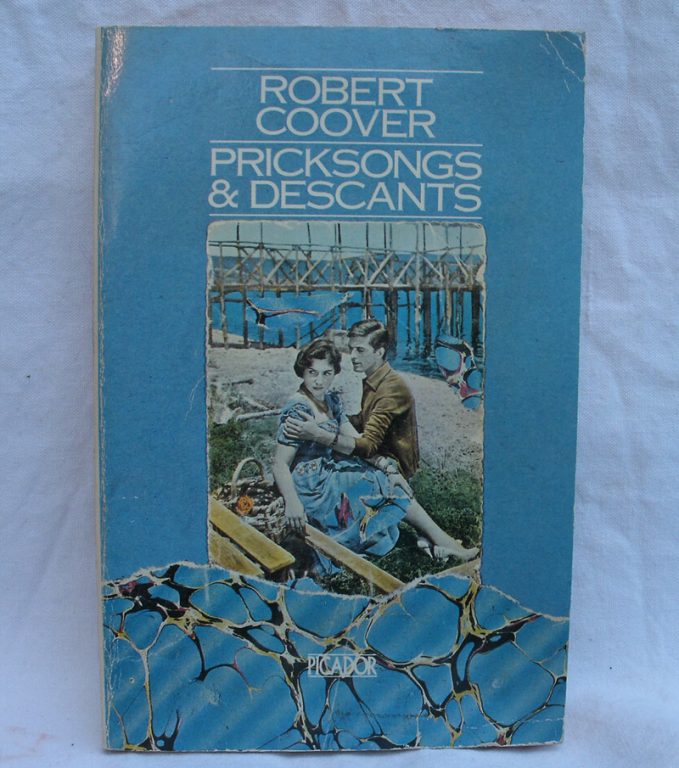Frightening to me: how few people in the wide world have heard of Robert Coover. Of course, many people who write love Coover, but not nearly enough of the people who write do. And yet Robert Coover was around, being magically realistic before readers who loved Fifty Shades started picking up Tenth of December.
Pricksongs & Descants is the book I look for most often in the hands of riders on the subway and bathers on beaches. I never see it. I don’t know why it’s so important to me that I find it. Maybe because the whole world is going to hell, and it would be nice to be able to spot the virtuous undead by their choices in literature.
To start with, even the title of this book of stories, like almost everything about Coover’s work, foretells a near-sensual, always-musical intelligence. His lines are poetic without appearing to have been considered. Effortlessly organic, like chickens in Nova Scotia.
Passages like this one –
– are perhaps the personification of the mind that says writing cannot be taught. But then, to bolster the opposite school, those very same lines echo our current masters of the form, who must have at some point been the ones reading Coover on the subway.
There are writers I read to make me sharper, and writers I read for the unproblematic joy of story. Coover is neither. Coover I read for my five senses. He does not stun at the word level or the sentence level or the story level so much as he does at the passage level. His paragraphs knock you over without your falling down, like a bop bag. There’s a flex to them. Magic, the as-yet-undiscovered kind. A futurism, and an ancient Greekism as well.

I am trying to think which of these stories I like the best. Each of the ‘Seven Exemplary Fictions’ I find astounding, and ‘The Gingerbread House’, where he does the Cooverish thing of taking a fable and not so much reimagining it, but imbuing Technicolor and Smell-o-Vision. Of course there is also the feverishly-anthologized ‘The Babysitter’, the one people cite as a story they love without remembering its author.
In Coover’s world, people have regular old blue-collar and white-collar and marriage-collar conversations, but they do it with a death-subverting elegance, even as they ready themselves to be wheeled away. In this time of the undead, we need more Coover, to understand it’s all going to be okay. Or it isn’t, you see, you see.






